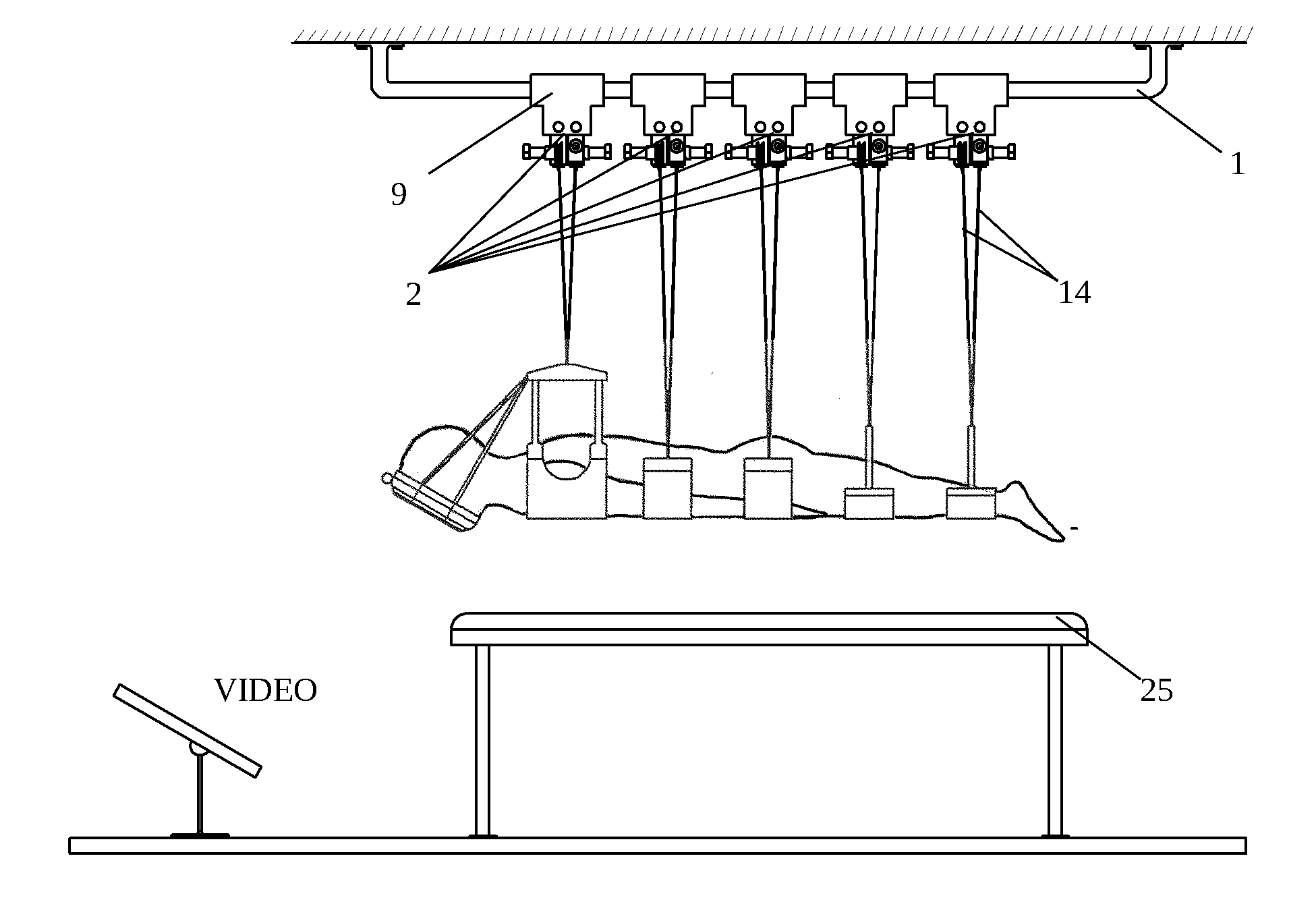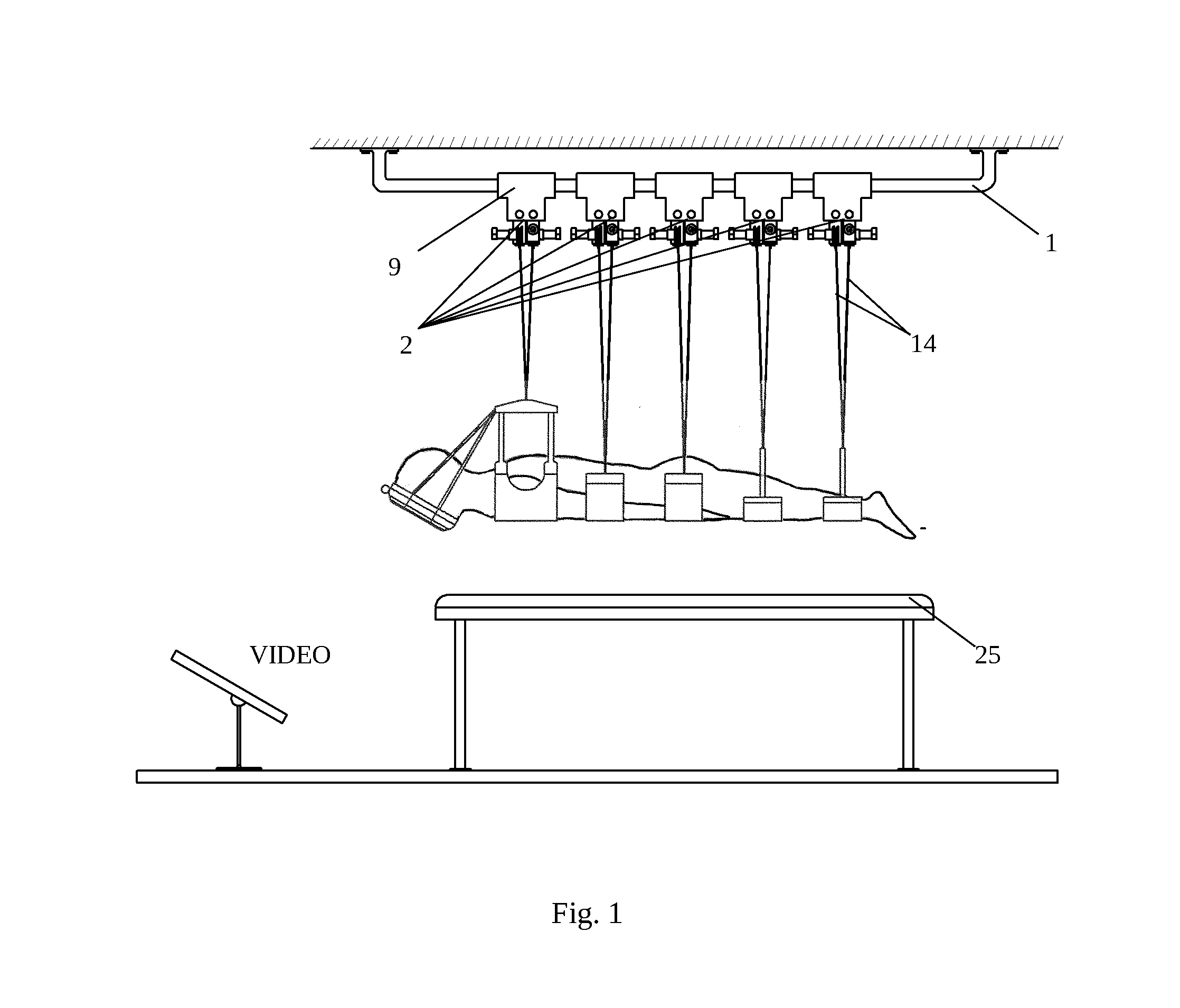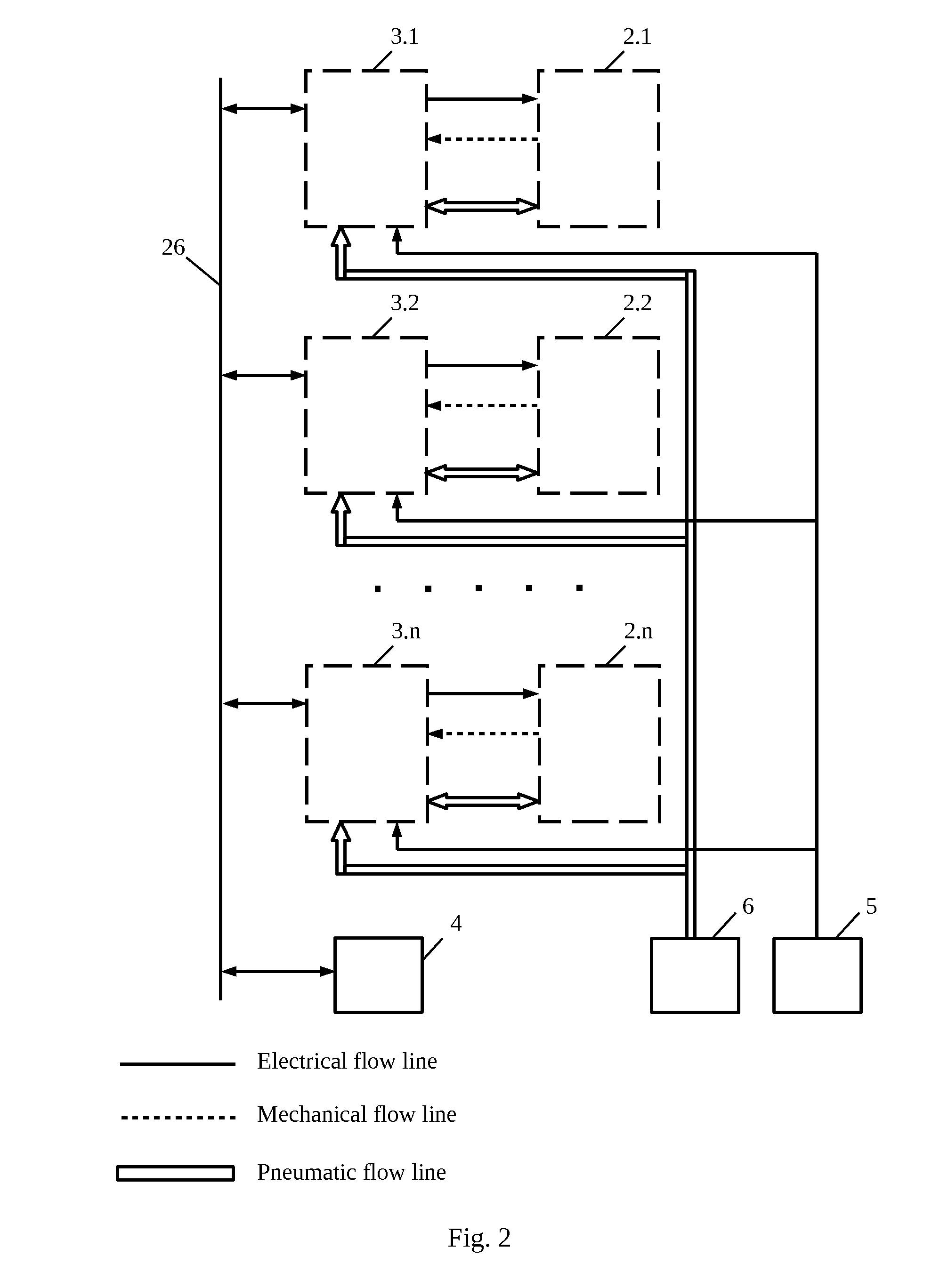Therapeutic exercise method and therapeutic exercise apparatus
a technology of therapeutic exercise and therapeutic exercise, applied in the field of medicine, can solve the problems of insufficient functional options and adaptability to an individual patient, insufficient consumer properties, and high power consumption, and achieve the effect of broadening the functional options of the method, increasing the motivation and effectiveness of rehabilitation of the motor function of the patient, and broadening the functional options
- Summary
- Abstract
- Description
- Claims
- Application Information
AI Technical Summary
Benefits of technology
Problems solved by technology
Method used
Image
Examples
Embodiment Construction
[0026]The proposed rehabilitation exercise apparatus (FIGS. 1-7) includes a base 1, consisting of two parallel longitudinal guides 7 with fasteners 8 for attaching the guides to the ceiling; movable traverses 9 capable of sliding along the guides, (for example, the number of the traverses 9 is five, as shown in FIG. 1), i.e. the number of the traverses fits to the parts of the patient's body that require to be suspended. Each of the movable traverses 9 carries a pair of actuating mechanisms 2. Each of the actuating mechanisms 2 is used for holding the patient suspended and manipulating a particular part of his / her body; each actuating mechanism includes a pneumatic cylinder 10 with an actuating member 14 and equipped with an electric motor 12 with a pulley 13 on the output shaft. The electric motor 12 can be equipped with a reducer (as shown in FIGS. 4-6). The actuating member 14 of the actuating mechanism 2 is executed as a flexible non-extendable cord with a smooth polymer coating...
PUM
 Login to View More
Login to View More Abstract
Description
Claims
Application Information
 Login to View More
Login to View More - R&D
- Intellectual Property
- Life Sciences
- Materials
- Tech Scout
- Unparalleled Data Quality
- Higher Quality Content
- 60% Fewer Hallucinations
Browse by: Latest US Patents, China's latest patents, Technical Efficacy Thesaurus, Application Domain, Technology Topic, Popular Technical Reports.
© 2025 PatSnap. All rights reserved.Legal|Privacy policy|Modern Slavery Act Transparency Statement|Sitemap|About US| Contact US: help@patsnap.com



